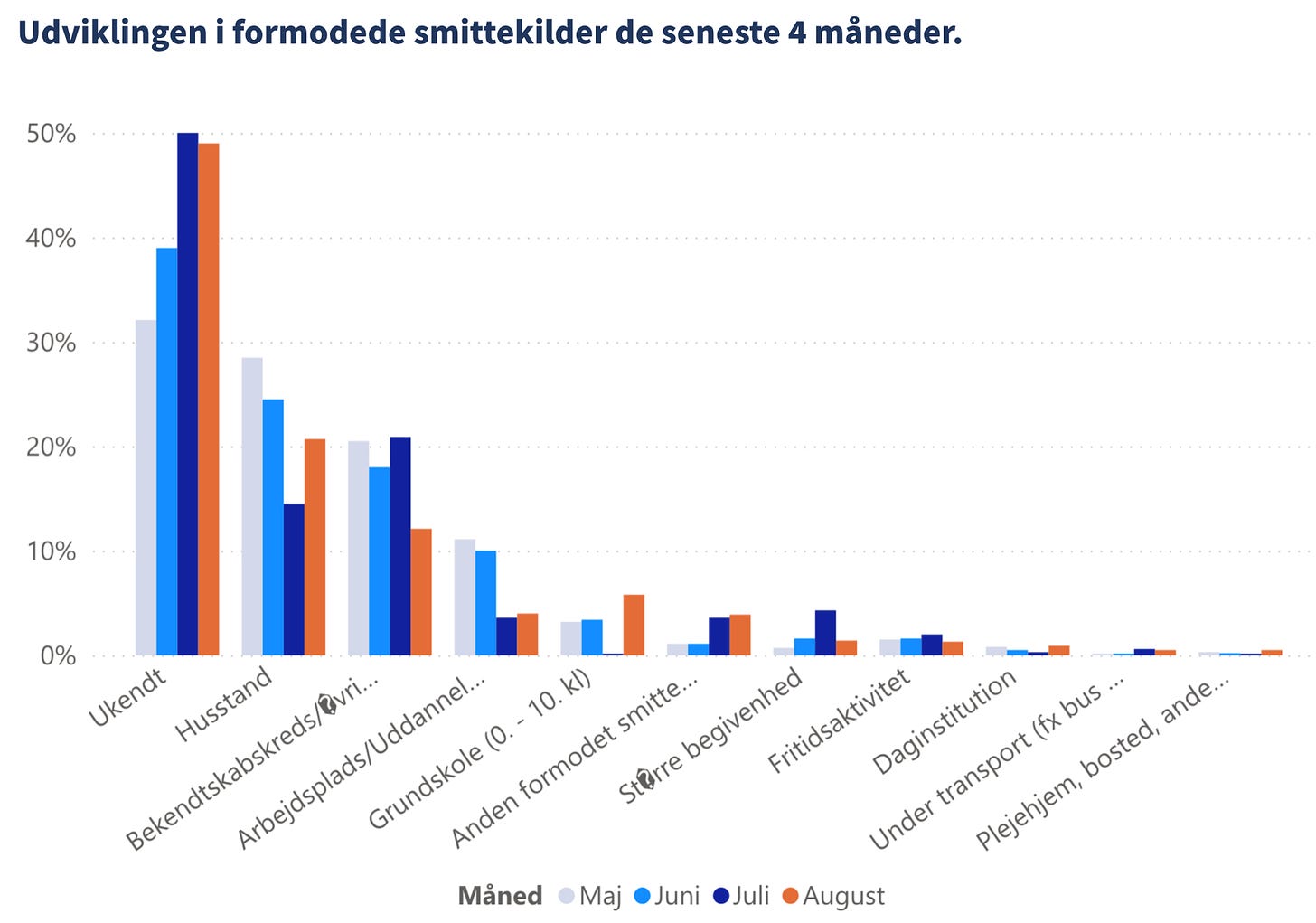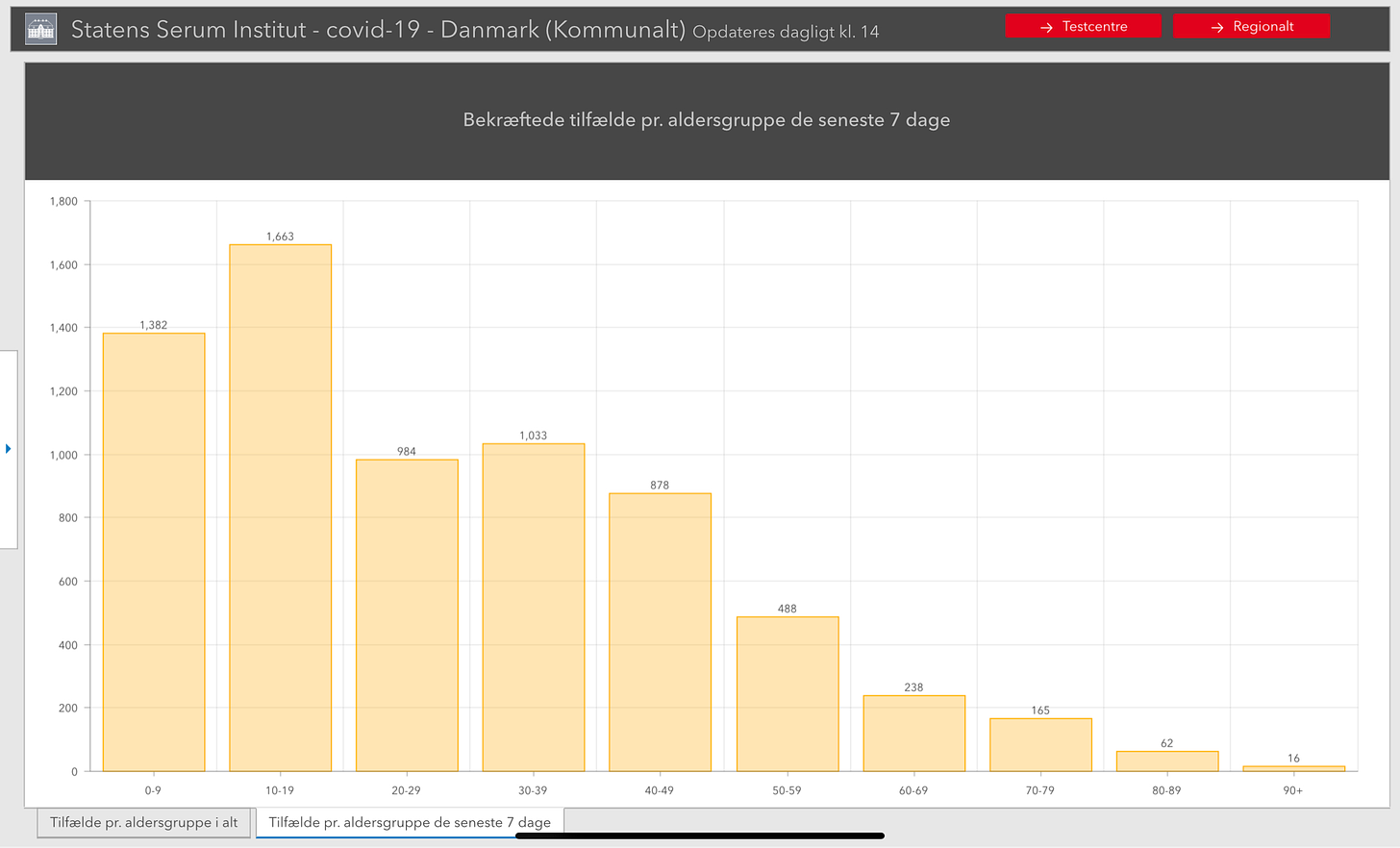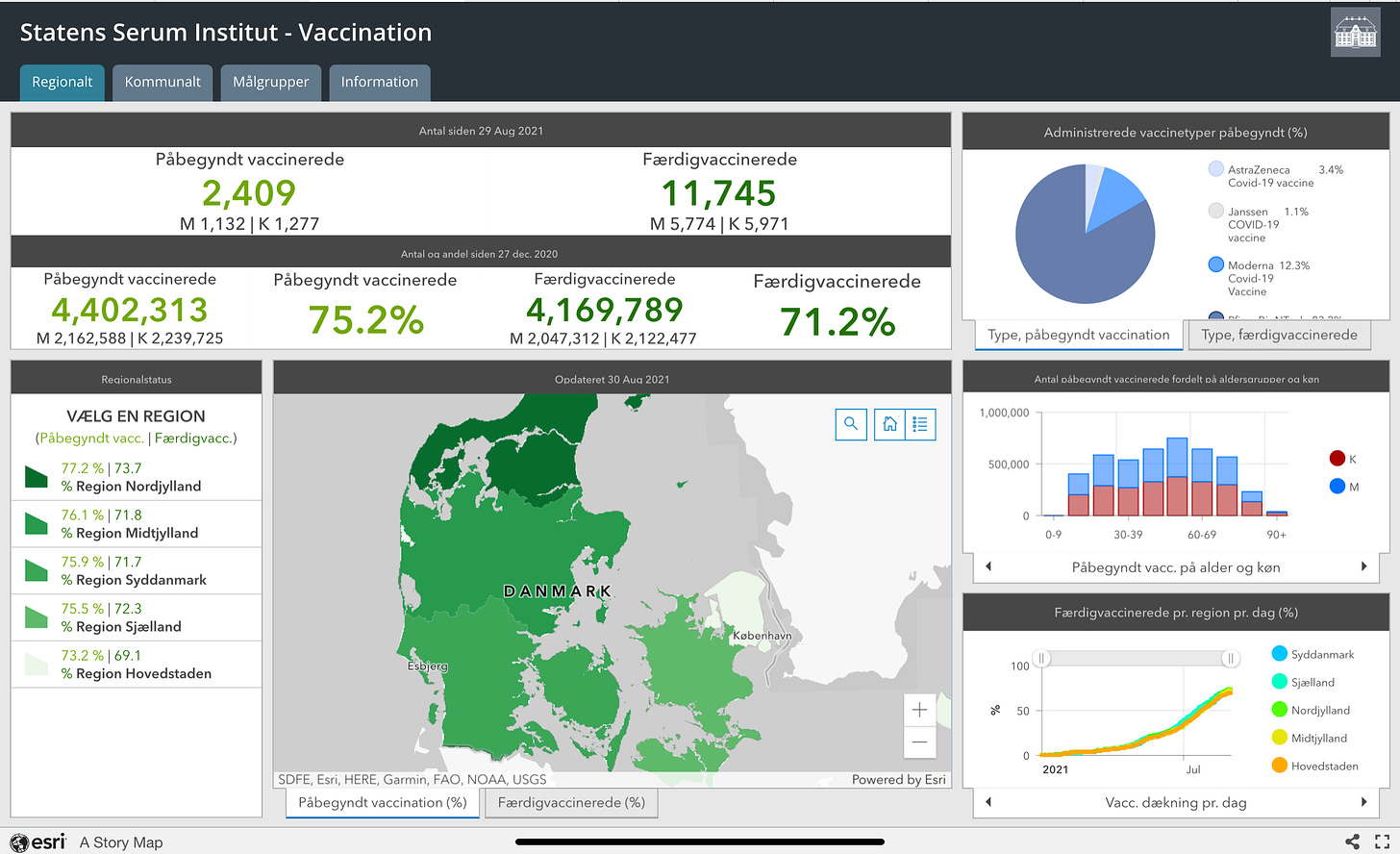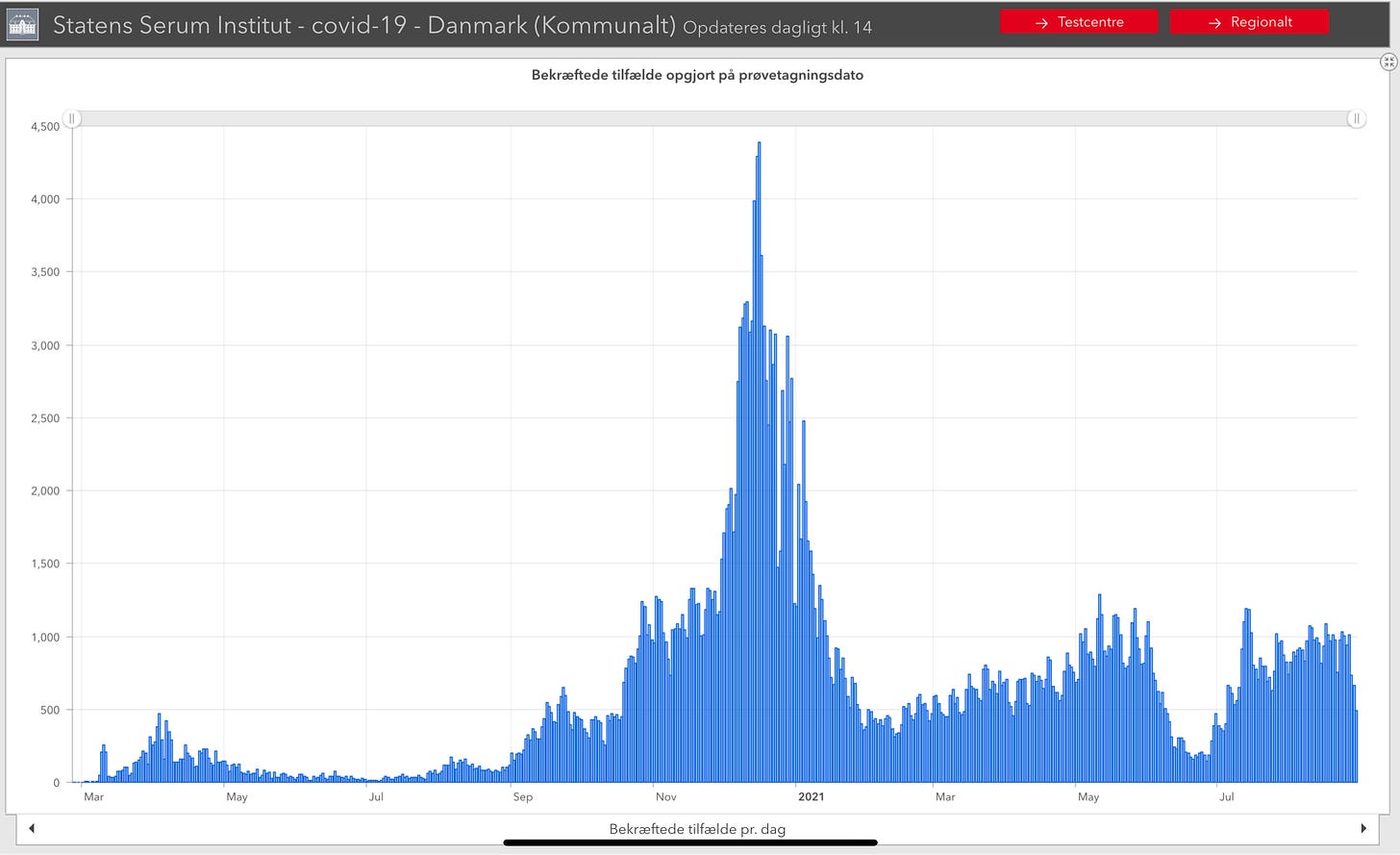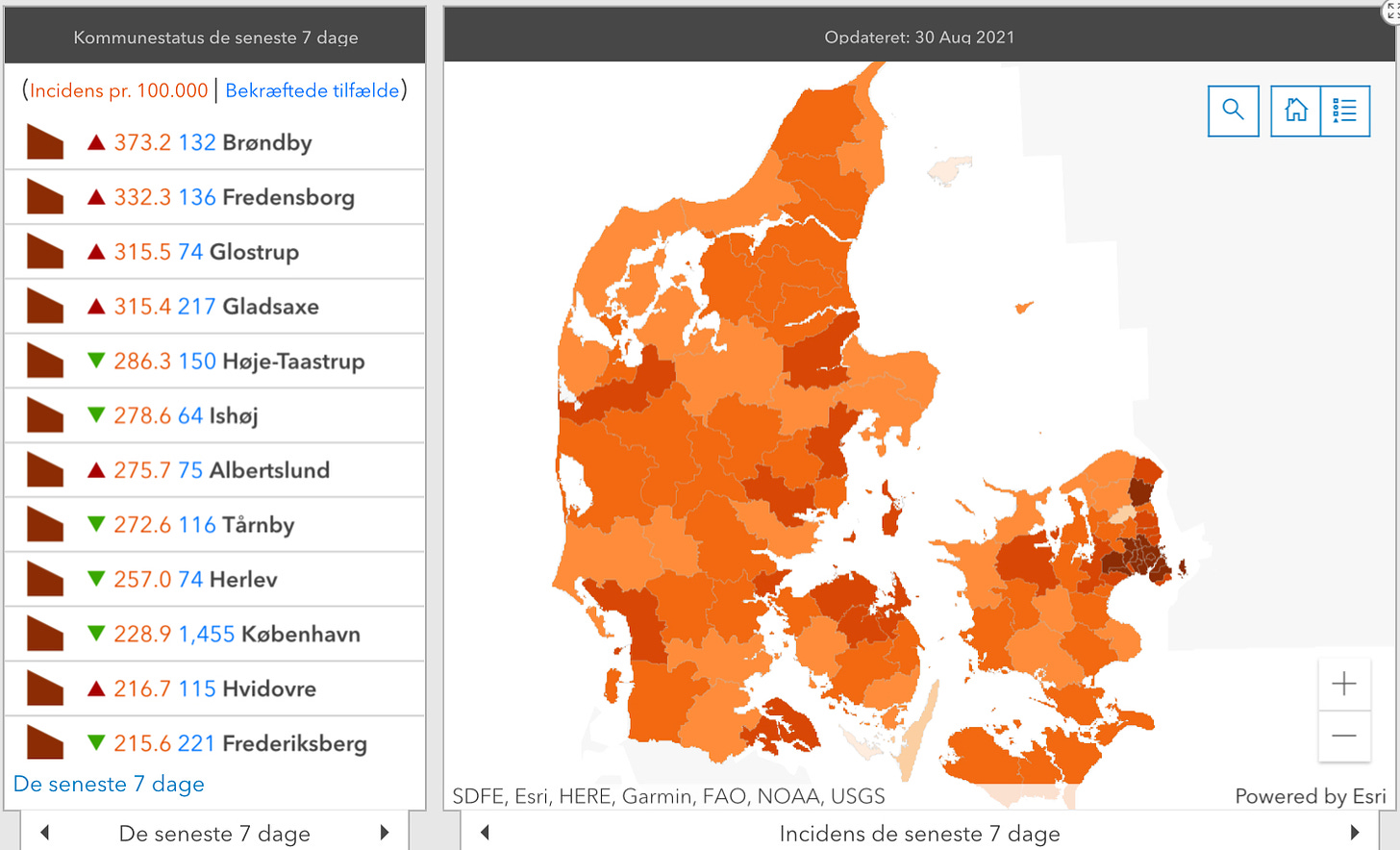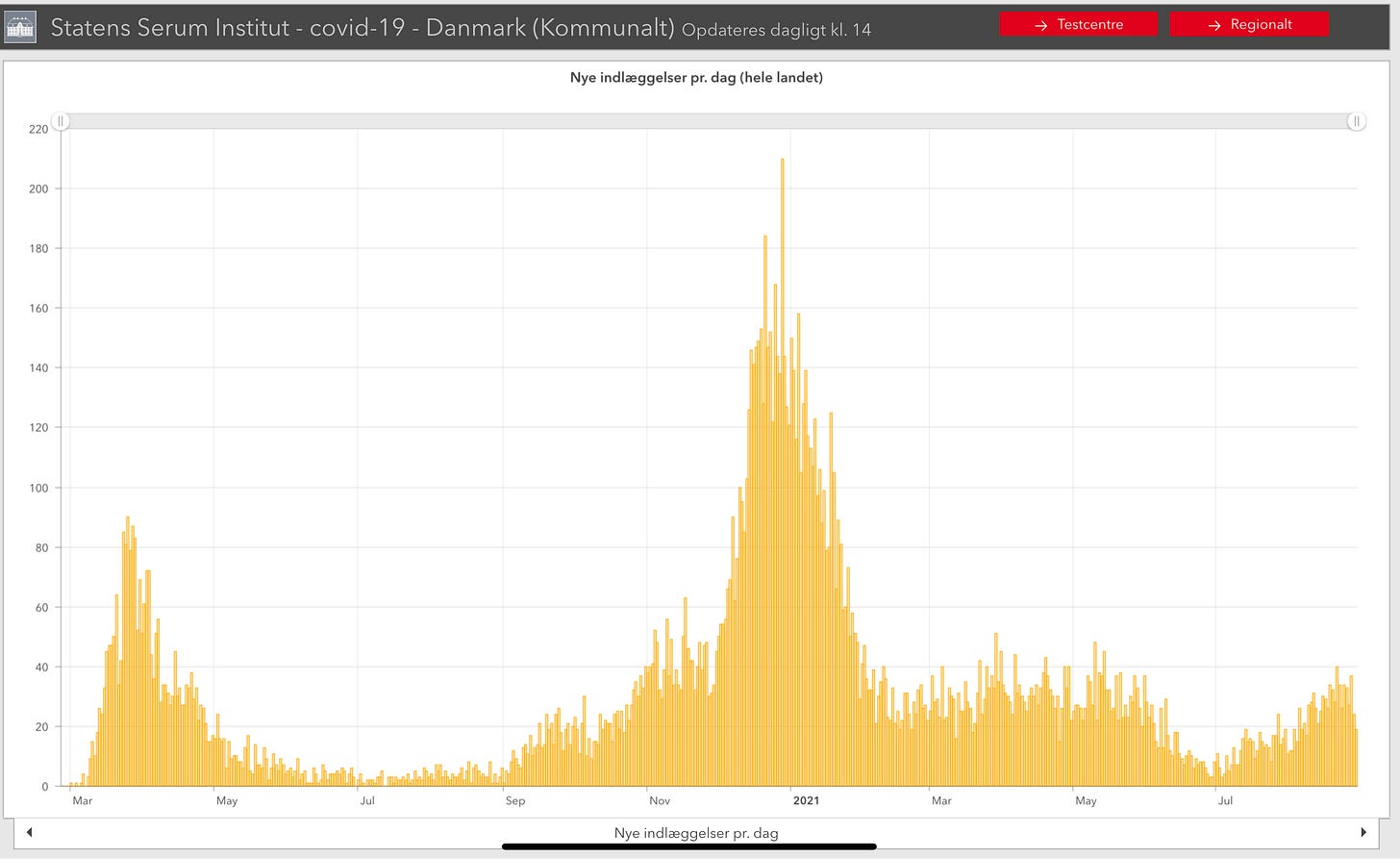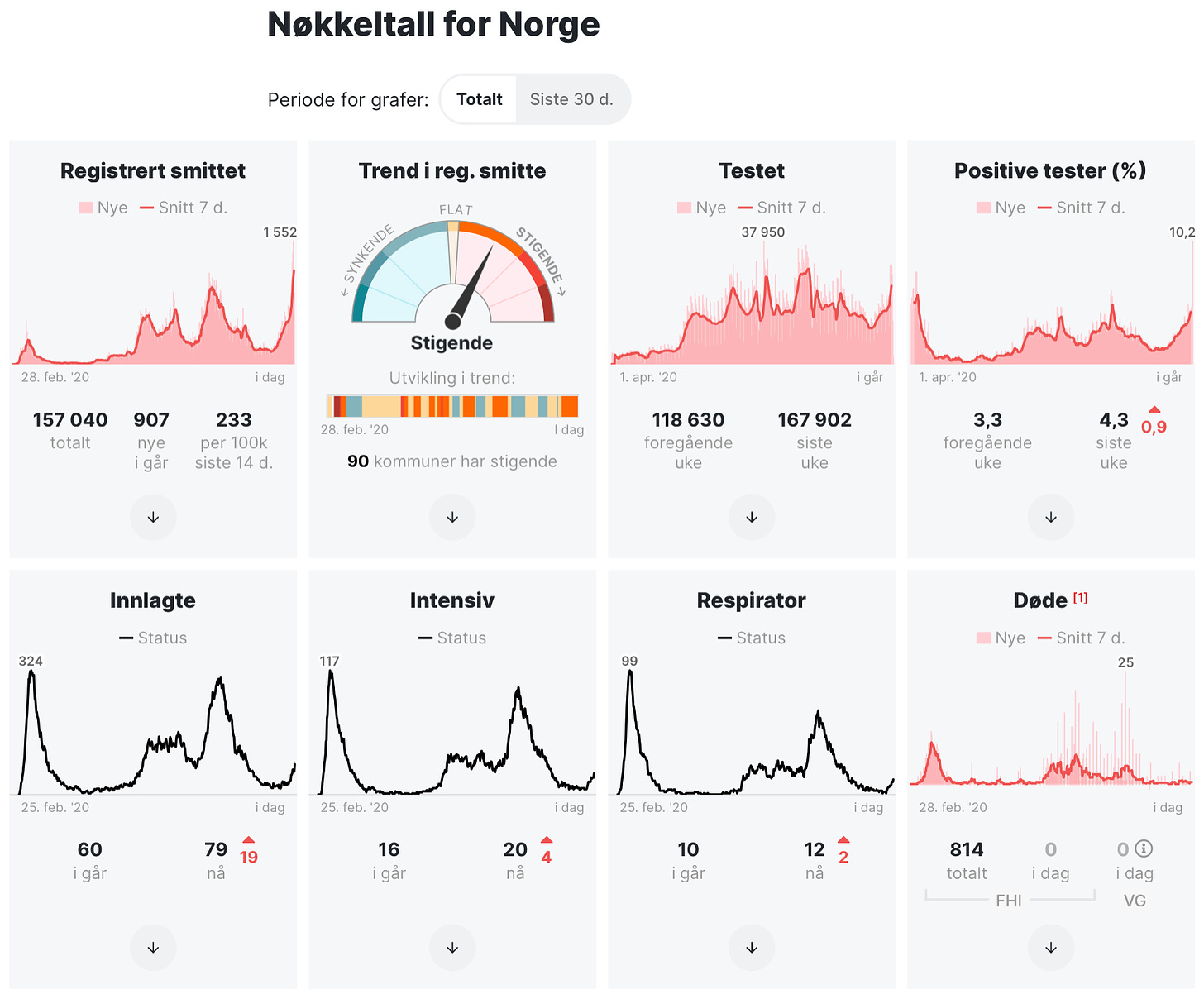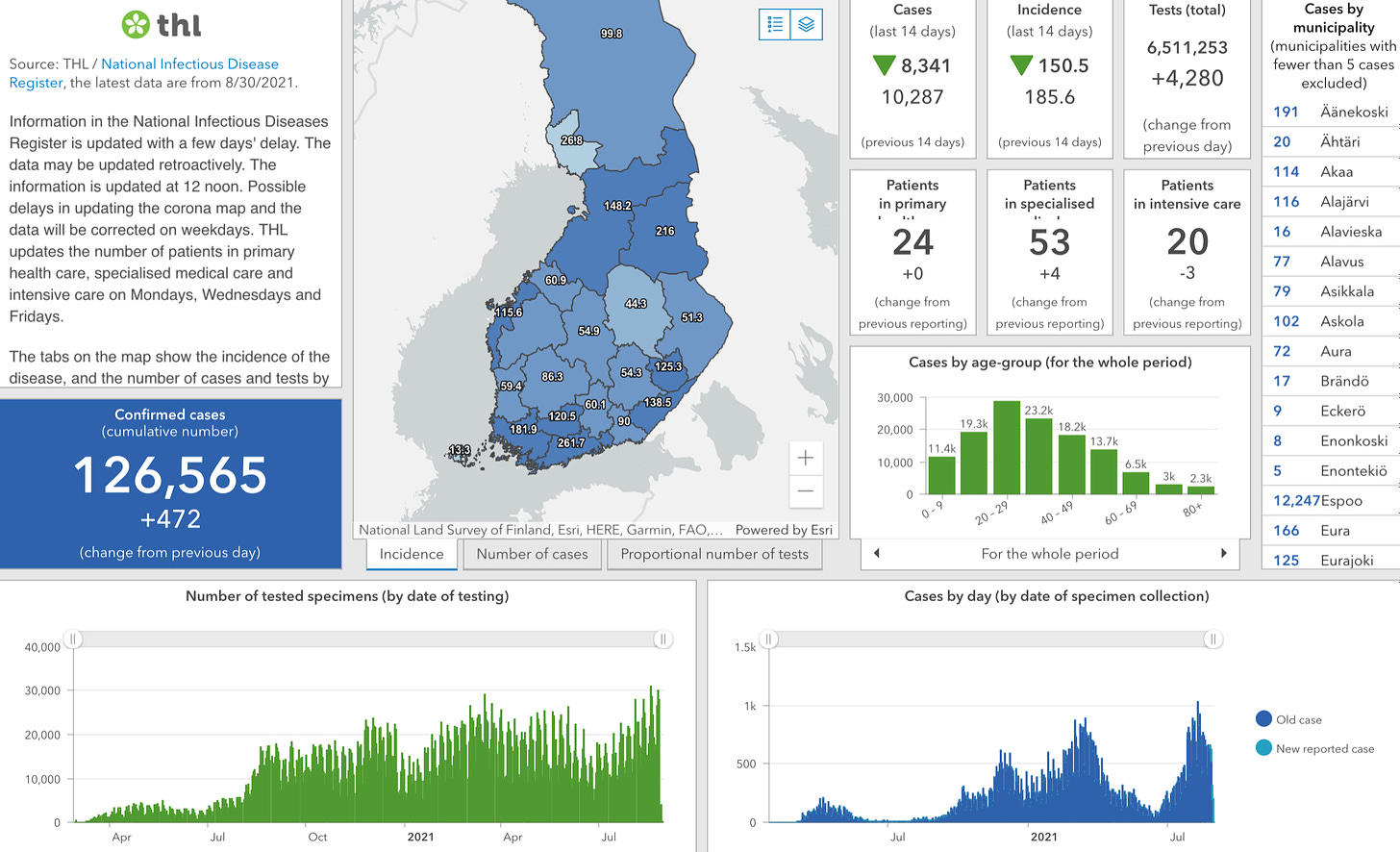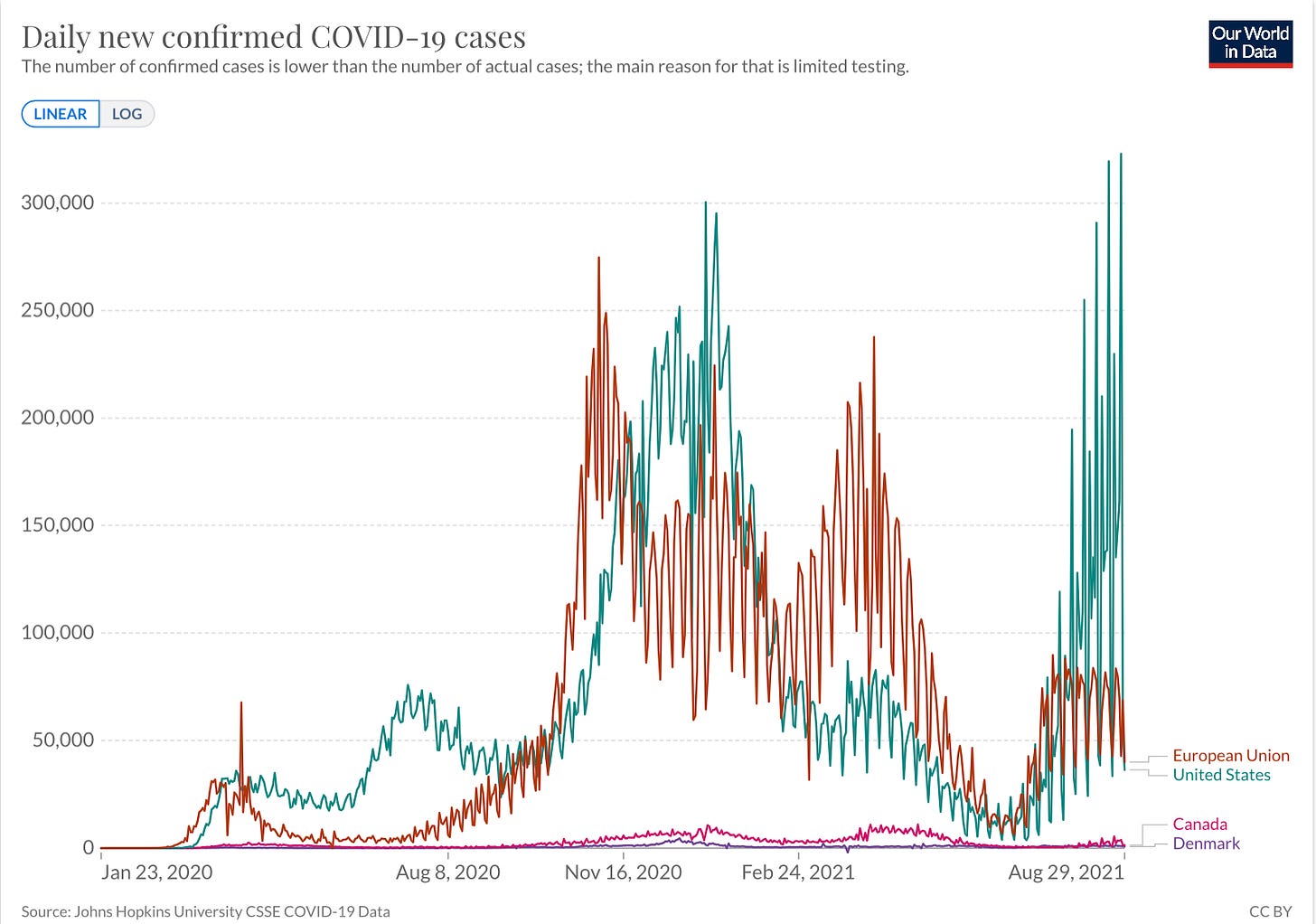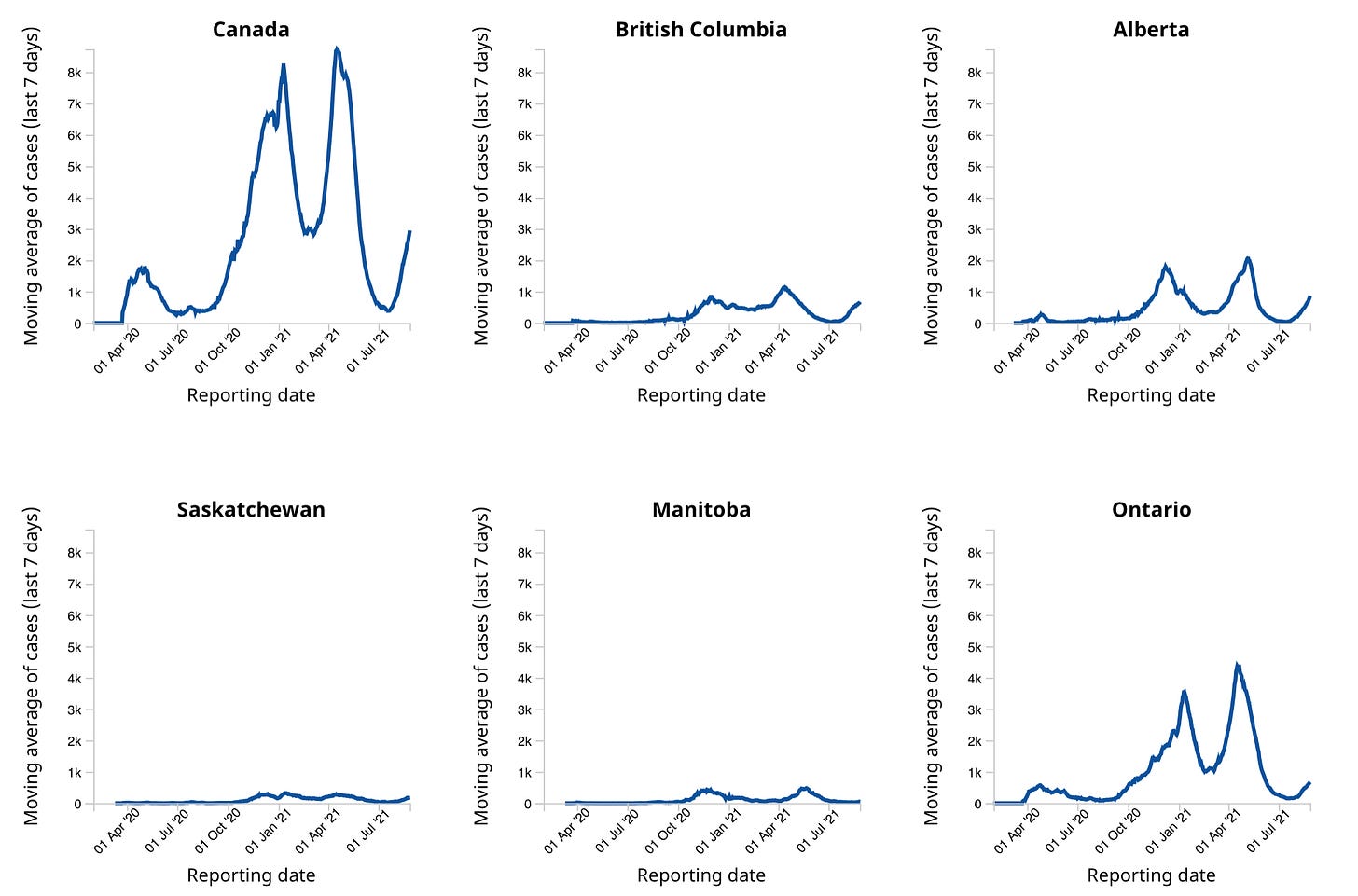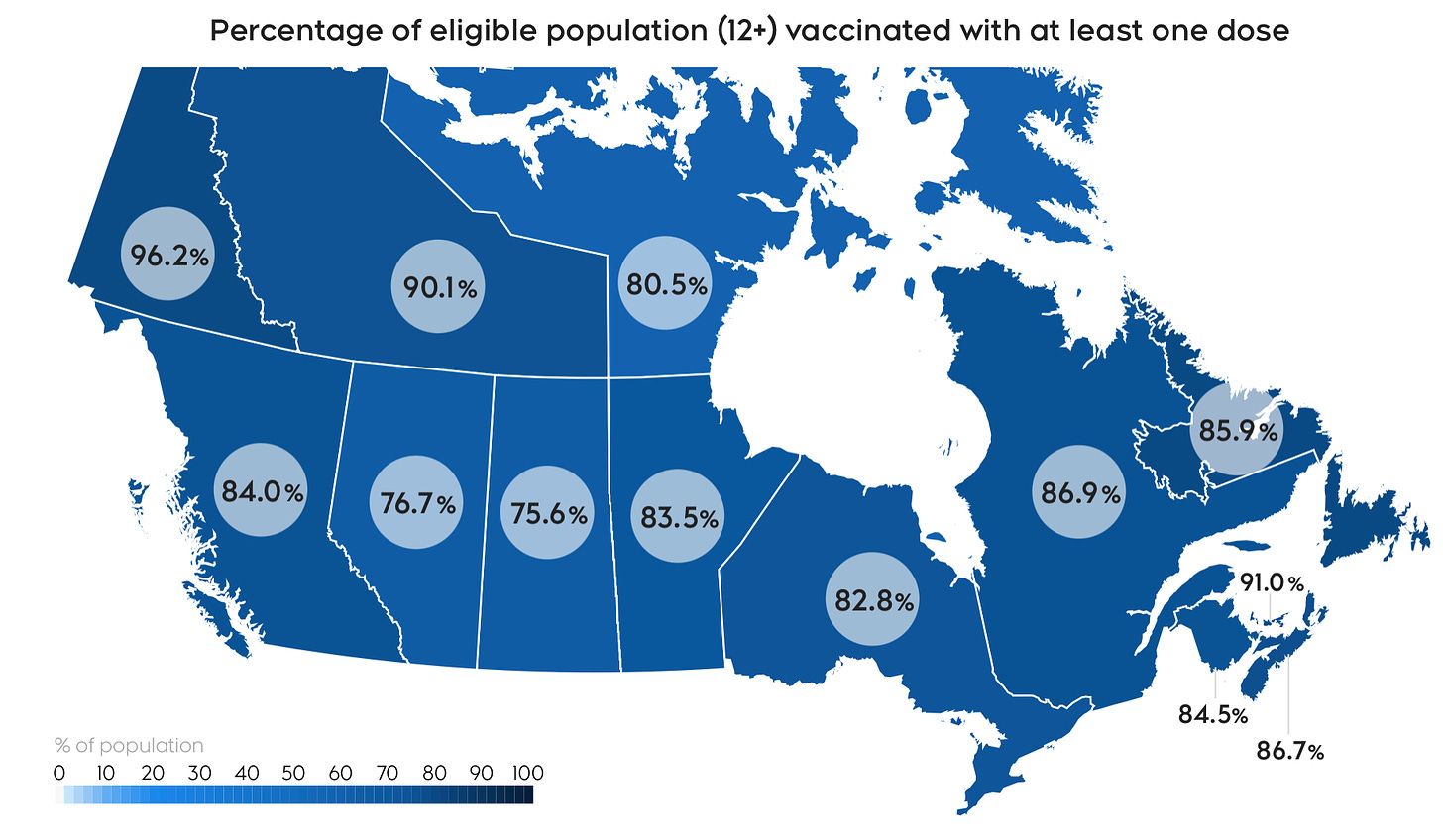🇩🇰
Denmark’s National Health Board is now recommending children between two and six years old should get a flu shot this year. Free vaccination clinics offering flu shots will open on October 1 and until at least January 15. The vaccination is voluntary, but the health board is urging parents to get their children inoculated.
Deputy Director Helene Probst spoke with Politiken:
“The main reason for our new recommendation is that it will have a huge effect on the overall incidence of influenza in the entire population. But it will also protect the smaller siblings, the children themselves, and the whole family.”
Health professionals have been warning of a brutal flu season ahead. This is due to COVID restrictions all but wiping out last year’s influenza season, which might have impacted built-up resistance in our immune systems. This could provide an opening for influenza and other ‘usual’ viruses we all got a pass on over the last year to come roaring back. In fact, Denmark and many other countries are already seeing earlier than usual resurgences of different viral infections.
-
The Danish Agency for Patient Safety (STPS) says while travel-related COVID infections have dropped since summer holidays ended, infections are now climbing among kids in primary schools. Since students returned to school in August, the number of COVID cases among children from grades 0 to 10 as a proportion of all new infections has climbed to 12.6%. That is higher than infection activity seen at the end of the last school year in May and June.
The STPS has responsibility for aspects of infection control including contact tracing. Data from the agency, gathered from talking to infected people and their contacts, shows that the only sources of infection greater than primary schools this month are workplaces and a person’s social circle. As has been the trend for many months of the pandemic, the highest percentage of people simply don’t know where they became infected, 41.4% so far in August.
-
The Danish National Health Board says those aged 20 to 29 years old have lagging vaccination numbers as compared to all other age groups. Region Midtjylland says it is seeing that reflected at the regional level. The region has shifted its vaccination efforts to mobile pop-up sites that are currently on the grounds of universities and vocational colleges.
Nurse Leni Johansen is helping with the vaccination effort and spoke to DR.
“We can see that 20 to 29-year-olds have slightly lower vaccination adherence than the rest of the population. So the simple hope is to get more of them vaccinated.”
Last week pop-up vaccination sites were at Viby Gymnasium and this week they are at Aarhus University and some other locations. Next week the focus moves to VIA College departments in Aarhus.
The pop-up sites are open for four hours but will continue to administer doses as long as there are students lined up.
-
The number of new coronavirus infections over the last seven days continues to be concentrated among those under the age of 50. Those 19 years old and younger are seeing the highest number of COVID cases of any age group. However, numbers for those 30 to 39 years old have also increased.
-
On the vaccination front to date, 75.2% of the total population has one vaccine dose and 71.2% are fully vaccinated.
Yesterday, there were just 14,154 total inoculations done with 2,409 being a first dose.
-
Denmark has begun to administer a 3rd booster shot to a small group of vulnerable people who are immuno-compromised. The National Board of Health says the third dose will go to “people with certain types of malignant blood and bone marrow diseases, people who have had organ transplants, people on dialysis, and people who have been treated with special immunosuppressive drugs, or who have been on active chemotherapy during 2021.”
Deputy Director Helene Probst:
“The vast majority of people with a weakened immune system are expected to be well protected against a serious illness due to COVID when they have been vaccinated. However, people with a severely weakened immune system get far less protection from being vaccinated. Therefore, they will now be offered a 3rd shot to boost their immune response and thus protect them from serious illness.”
The booster dose can be administered one month after a person’s second shot, a s ideally no later than nine months after a second dose. The health board says it has identified who qualifies for the booster dose and those people will receive vaccination invitations in their e-Boks.
The Sundhedsstyrelsen says it is also “in the process of assessing” whether a booster shot should also be offered to the larger population and, if so when.
-
Denmark is reporting 762 COVID infections and no new deaths in the last day.
Yesterday there were 114,085 total corona tests done, 55,984 PCR and 58,101 rapid, for a (PCR only) positivity percentage of 1.36%.
-
The number of Danish kommunes with COVID incidence rates above 100 per 100,000 residents has fallen to 34. Of those, the number of municipalities with incidence rates above 200 is 14.
-
COVID hospitalizations (142) jumped upward (+13), while the number of infected people in an ICU (22) also increased (+3), and, of those, the number on a ventilator (13) edged upward as well (+1).
-
While hospitalization numbers in Denmark have tripled since early July, a University of Copenhagen professor is not terribly concerned.
Professor of Experimental Virology Allan Randrup Thomsen spoke with Ritzau and said while hospitalizations are certainly rising at the moment, the situation is not “threatening.”
However, Thomsen is less optimistic about the coming fall months.
“We are in a kind of waiting situation, where we await how the situation will be in this post-vaccinated society. How will the two groups, unvaccinated children under the age of 12 and the remaining group who have not been vaccinated, affect the overall picture?”
He predicts that Denmark will see both infection and hospitalization numbers really rise in the months ahead.
-
The Danish Shipowner’s Association (Danske Rederier) is welcoming the Danish government’s decision to pull the Johnson & Johnson vaccine from the optional scheme and use it in private clinics. The association says it has been lobbying for just this move in order to offer vaccinations to mariners working on freighters who call on Danish ports regardless of their nationality.
CEO of TORM A/S and chairman of Danske Rederier Jacob Meldgaard:
"It is very positive that even more seafarers can now be vaccinated. A COVID vaccination is often their ticket to be able to travel around the world to board and disembark the ships. At the same time, some of the seafarers from the Philippines and India, for example, do not have the same access to vaccines in their home country, and here we as a maritime nation have the opportunity to give them a helping hand.”
The association estimates this will get vaccinations to about 3,000 mariners during the last half of this year.
On Friday, the Danish Ministry of Health announced it was pulling the Johnson & Johnson one-shot vaccine from the optional inoculation program. It was then going to distribute it to private clinics where the vaccine would be available at a cost in the same way travel vaccination clinics operate.
🇸🇪
Sweden will update its COVID numbers tomorrow for the first time this week.
-
Region Stockholm is urging people who haven’t yet begun the vaccination process ro get their shots as soon as possible. It says the Delta variant-driven infection wave is tearing through populations of unvaccinated people. The health region analyzed just over 10,000 positive test results over the last eight weeks and found a whopping 92% were among people that either had a single vaccine dose or were unvaccinated.
Acting Director of Health and Medical Care Johan Bratt:
“The Delta variant is dominant in Sweden and has been for a while. We know that it is more contagious and that it requires two doses of vaccine to get really good protection. This shows how important it is to get both vaccine doses to get maximum protection.”
On a positive note, Sweden’s capital region says the pressure on hospitals has eased slightly and hospitalizations seem to have plateaued. It says there are 2,669 open care beds in the region, 265 more than in week 33.
🇳🇴
Norway has added 429 infections with no new corona deaths in the last day.
COVID hospitalizations (79) have jumped upward (+19) while ICU numbers (20) are also up (+4) of those ventilator numbers (12) crept up as well (+2).
To date, 71.41% of Norwegians have had one vaccine dose and 55.74% have had both.
-
Like Denmark, Norway is also offering a third booster dose to vulnerable populations who have compromised immune systems. The Norwegian Institute for Public Health says people being treated for cancer, who have HIV, or who had an organ transplant, among others, get less protection from two vaccine doses and are vulnerable to serious cases of COVID.
However, while it begins a third booster dose campaign for vulnerable populations, the institute is also cautioning “it is currently uncertain how much this means for protection against becoming infected and getting a serious illness.” The NIPH says this will be the subject of studies in Norway and elsewhere.
The institute advises even with a third dose people who are immune-compromised still need to take steps to protect themselves from coronavirus exposure. It also recommends family and other close contacts of a person with a weakened immune systems should also make vaccination a priority.
While the United States and some other countries have announced booster shot campaigns for the larger general population, Norway’s health agency is not sold. The institute notes “the knowledge base for this is still very limited. There is a need for more knowledge here.”
Chief Physician Sara Viksmoen Watle:
“So far, there is no indication that there is a need for refresher doses for those who are already fully vaccinated in the general population here in Norway, not even among the elderly. Fully vaccinated people in these groups have good protection against severe coronavirus disease, and also against the Delta variant. This can change and is something we will follow closely.”
The NIPH says it is still unknown how long protection from two doses of the vaccine last. It says this is the subject of plenty of studies, as are efforts to determine external factors that might also impact the longevity of two vaccine doses.
🇫🇮
Finland has registered 472 infections in the last 24 hours.
On the COVID vaccination front, 4,015,528 1st doses (71.8% of the population) have been administered while 2,771,437 people (49.7%) are fully vaccinated.
🇪🇺🇫🇮 🇯🇵
Finland’s pharmaceutical watchdog FIMEA says it and the European Medicines Agency are both keenly aware of the potential issues that led Japan to suspend use of the Moderna vaccine. It says both agencies are keeping a close eye on the situation. While Japan investigates possible contaminants in vials of the Moderna vaccine, FIMEA says this does not appear to have an impact in Europe.
“Based on current information, potentially contaminated consignments have not been imported to Finland or elsewhere in Europe, and the problem does not apply to the production lines on which consignments imported into the E.U. are manufactured.”
It says the EMA will continue to investigate and it is in direct contact with Moderna on the issue.
🇪🇺🦠💉
The World Health Organization is urging Europeans to get vaccinated if they have not been already. The WHO issued a stark warning, saying the colder fall months could see COVID claim up to a quarter of a million lives in Europe.
WHO Europe Director Hans Kluge spoke to AFP:
“Last week, there was an 11-percent increase in the number of deaths in the region. A credible forecast points to 236,000 deaths in Europe by December 1.”
Two doses of an approved vaccine offer strong protection against the possibility of infection, but also extremely high protection against a serious bout of COVID, hospitalization, and death.
🇪🇺🇺🇸
In a non-binding recommendation today, the European Union is encouraging member nations to reinstate travel restrictions on travelers from the United States. The U.S., along with Israel, Kosovo, Lebanon, Montenegro, and the Republic of North Macedonia, were removed today from the E.U’s “safe list” of countries where COVID restrictions were recommended to be removed. All 27 member nations across Europe are being asked to restrict non-essential travel from the United States and the other five countries.
While the United States continues to bar all travelers from Europe, with a some exceptions, the E.U opened the doors to American travelers back in June.
COVID cases have exploded in the States again as it saw almost 200,000 new infections on Friday, daily COVID numbers that haven’t been seen in the U.S. since January.
🇨🇦
The Canadian government’s COVID dashboard has still not been updated since Friday. Until it tables a new update, I will have to lean on Worldometers. It says Canada added 4,456 new COVID infections over the weekend.
To date, the Canadian vaccination effort has administered 27,856,176 1st vaccine doses (73.17% of the total population) while 25,291,243 people (66.43%) have had both doses.
In Ontario today there were 694 infections and no new virus deaths. 527 of those are among people who are unvaccinated or who have a single dose. 226 people are hospitalized and 160 are in an ICU.
Quebec reported 386 corona infections and no new deaths.
In Atlantic Canada, Nova Scotia logged 31 new infections over the last three days. New Brunswick has 39. Newfoundland and Labrador had nine
Manitoba saw 182 COVID cases over the last three days.
There were 257 infections and one more death in Saskatchewan yesterday. This marks three straight days with new infections exceeding 200. Premier Scott Moe will hold a press conference later today to address the situation.
B.C. and Alberta do not report on weekends and both will table three days worth of COVID data later today.




